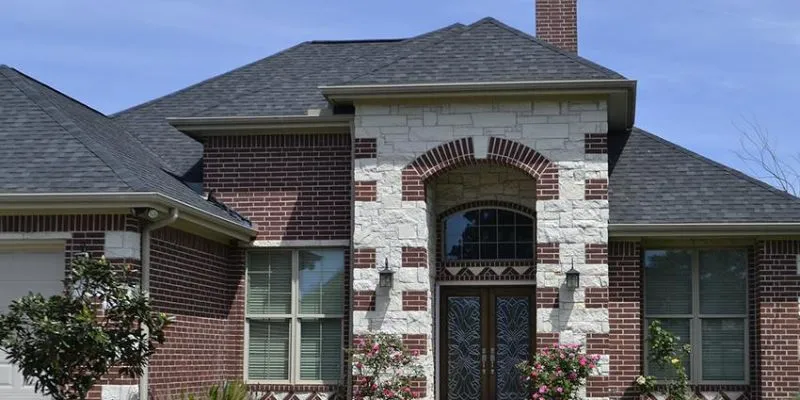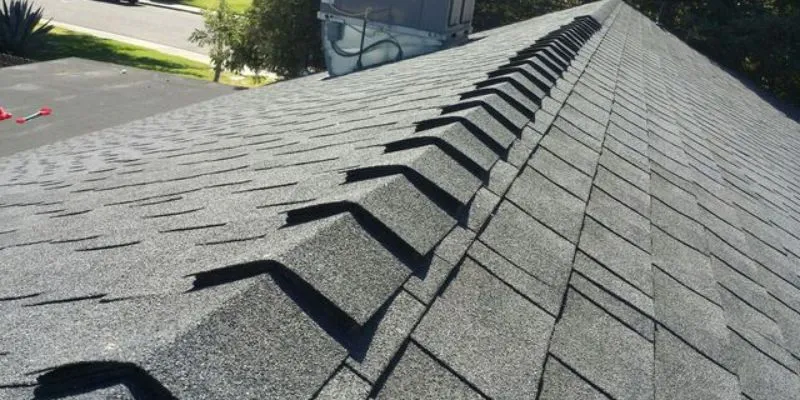When it comes to roofing, one critical factor that ensures longevity and effectiveness is the pitch of the roof. But what is the minimum pitch for shingles to maintain integrity and resist the elements? In this article, we’ll break down the essential knowledge you need, presented in simple, clear language.
What is Roof Pitch?
Roof pitch refers to the steepness or angle of your roof. It’s expressed in terms of rise over run, meaning the vertical rise over the horizontal run.
The Significance of Pitch
- Weather Resistance: A proper pitch helps shed water and snow efficiently.
- Aesthetics: It contributes to the overall look of your home.
- Longevity: Correct pitch can extend the life of your roof.
Minimum Pitch for Asphalt Shingles
Asphalt shingles are by far the most common roofing material due to their cost-effectiveness and durability. However, they require an adequate slope to function correctly.
- The Standard: The minimum pitch for asphalt shingles is generally 2/12. This means the roof must rise 2 inches for every 12 inches of horizontal run.
- Why It Matters: Without the minimum pitch, asphalt shingles are prone to leaks and damage.
Minimum Pitch for Different Shingle Types
Different materials may require various pitches:
- Architectural Shingles: Typically need a minimum 3/12 pitch.
- Three-Tab Shingles: Also require at least a 3/12 pitch.
Table: Shingle Types and Their Minimum Pitches
| Shingle Type | Minimum Required Pitch |
| Architectural Shingles | 3/12 |
| Three-Tab Shingles | 3/12 |
| Metal Roofing | 3/12 to 4/12 |
| Low Slope Systems | 1/4/12 to 2/12 |
Metal and Specialty Shingles
For metal roofs or specialty materials, the requirements may vary:
- Metal Roofs: These can go lower than asphalt shingles, with some systems able to be installed on a pitch as low as 1/4/12.
- Specialty Materials: Always check the manufacturer’s specifications for minimum pitch requirements.
Pitch and Degrees
Sometimes pitch is expressed in degrees. A 4/12 pitch translates to an angle of 18.4 degrees. Understanding this conversion is crucial for proper planning and installation.
Ensuring Optimal Water Drainage
- Gutters and Downspouts: Must be properly aligned with the pitch.
- Roof Design: Should facilitate the flow of water off the shingles.
Professional Roof Pitch Evaluation
It’s important to have a professional evaluation:
- Inspections: A roofing expert in Houston can provide accurate measurements.
- Consultations: Discuss your options based on the pitch of your roof.
Why Is 2:12 The Minimum?
The minimum pitch of 2:12 for shingles is crucial for several reasons:
- Water Drainage: Ensures efficient runoff of rainwater and melting snow, reducing leak risks.
- Warranty Requirements: Most shingle manufacturers stipulate this pitch as a condition for honoring warranties.
- Durability: Aids in the longevity of shingles by minimizing water pooling and ice dam formation.
This minimum slope is considered the standard for adequate water shedding without requiring additional underlayment layers, which are necessary for lower pitches. It’s a balance between aesthetic appeal and functional design for typical weather conditions.

Can You Install Shingles on a 2/12 Pitch Roof?
Yes, shingles can be installed on a 2/12 pitch roof, which is the minimum slope recommended for traditional asphalt shingles. This pitch allows for proper water runoff and is commonly accepted as the standard to maintain material warranties.
Is a 1/12 Roof Pitch Acceptable?
A 1/12 roof pitch is generally too shallow for traditional shingles due to inadequate drainage capabilities. For such low slopes, specialized roofing systems are recommended to prevent water infiltration.
What Is the Minimum Pitch Required for Shingle Warranties?
Shingle warranties typically require a minimum pitch of 2/12 to ensure effective water shedding. Roofs with pitches below this may not be covered due to increased risks of water damage.
Can Metal Roofing Be Applied to a 2/12 Pitch?
Metal roofing can be suitable for a 2/12 pitch roof, with certain metal roof systems designed to accommodate low slopes. However, it’s crucial to consult the product specifications and a professional installer for optimal performance.
The 4 Best Roof Systems For A Low Slope Or Flat Roof
For buildings with a low slope or flat roof, selecting the right roofing system is crucial for durability and weatherproofing. Here are the four best systems suited for such structures:
- Built-Up Roofing (BUR)
- Layers of tar and gravel offer robust protection.
- Proven track record of performance on low-slope roofs.
- Ideal for withstanding heavy foot traffic.
- Single-Ply Membranes (TPO, EPDM, PVC)
- Lightweight and versatile; TPO reflects UV rays, EPDM is durable, and PVC is chemical resistant.
- These membranes are relatively easy to install and maintain.
- They provide excellent water resistance and are suitable for varying climates.
- Modified Bitumen Systems
- Combines asphalt with modifiers for added flexibility and strength.
- Can be applied with heat (torched down) or with cold adhesives.
- A good choice for roofs with moderate foot traffic and expansion/contraction challenges.
- Metal Roofing
- Although more commonly associated with steeper slopes, certain metal roofing systems are designed for low slope applications.
- Durable, long-lasting, and available in a variety of styles and finishes.
- Metal roofs offer excellent resistance to extreme weather and fire.
Each of these systems has its unique advantages, and the best choice depends on specific building requirements, climate conditions, and budget considerations. It’s essential to consult with a roofing expert to determine the most suitable system for your needs.
Why Trust Hasid On The Roof Houston?
At Hasid On The Roof Houston, we’re experts in assessing and installing the perfect pitch for your shingle roof. Our team understands the nuances of roofing pitches and how they impact the longevity and functionality of your roof. With years of experience in the Houston area, we provide:
- Expertise: We know exactly what works best for your local climate.
- Reliability: Our team ensures that every roofing project meets the highest standards.
- Customer Service: We’re committed to your satisfaction from start to finish.
The minimum pitch for shingles is vital for the health of your roof. Whether you’re installing a new roof or assessing an existing one, understanding and implementing the correct pitch is key to avoiding leaks and ensuring durability. For personalized advice and professional roofing services, turn to the expertise of Hasid On The Roof Houston – where quality and customer care rise above.

